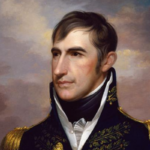There are so many astounding science fiction books out there that curating a list of the most important ones has been one of the hardest tasks I’ve undertaken. With countless contributions to the genre, narrowing it down to just fifteen has been a labor of love fraught with difficult choices. Science fiction is not only a genre that entertains but also one that challenges our understanding of humanity, technology, and the cosmos. Here is my final list of the most impactful science fiction books of all time. While it’s impossible to include every deserving title, I hope this list serves as a springboard for discussion. Feel free to share your thoughts and recommendations in the comments!
1. “Frankenstein” by Mary Shelley (1818)
Often cited as the first true science fiction novel, Mary Shelley’s groundbreaking tale of creation and its consequences raises deep philosophical questions about humanity, ethics, and the nature of life itself. The narrative of Victor Frankenstein and his monstrous creation continues to resonate with the themes of isolation and responsibility in scientific exploration.
2. “The War of the Worlds” by H.G. Wells (1898)
This seminal work not only introduced alien invasions to popular literature but also served as an allegory for British imperialism. H.G. Wells’s depiction of retreating humanity in the face of Martian terror warns against the hubris of civilization and prepares the ground for more complex extraterrestrial narratives.
3. “1984” by George Orwell (1949)
Orwell’s chilling dystopian vision of a totalitarian regime that wields power through surveillance and manipulation remains strikingly relevant. The themes of propaganda, censorship, and individualism versus collectivism challenge readers to reflect on their own societies and the importance of free thought.
4. “Dune” by Frank Herbert (1965)
A sprawling epic of politics, religion, and ecology, “Dune” is often hailed as one of the most significant sci-fi novels ever written. Herbert’s intricate universe sets the stage for exploring power dynamics and ecological sustainability, making it both an adventure and a philosophical treatise.
5. “Foundation” by Isaac Asimov (1951)
Spanning generations and galactic empires, Asimov’s “Foundation” series is foundational not only in its narrative scope but also in its exploration of psychohistory—the science of predicting the future of large populations. This concept has influenced various fields, from sociology to data science.
6. “The Left Hand of Darkness” by Ursula K. Le Guin (1969)
Le Guin’s exploration of gender and society through the lens of an alien world challenges the reader to reconsider preconceived notions of identity and humanity. Its thoughtful examination of androgyny and societal structures holds heightened relevance in today’s conversations around gender.
7. “Neuromancer” by William Gibson (1984)
As a cornerstone of the cyberpunk subgenre, “Neuromancer” introduced readers to a gritty, high-tech future filled with artificial intelligence and digital landscapes. Gibson’s vision of cyberspace has influenced not only literature but also film and technological innovation in the real world.
8. “Fahrenheit 451” by Ray Bradbury (1953)
Bradbury’s cautionary tale about censorship and the suppression of knowledge remains poignant today. The story of a fireman tasked with burning books explores the dangers of ignorance and the value of intellectual freedom, serving as a reminder of the importance of literature in society.
9. “The Hitchhiker’s Guide to the Galaxy” by Douglas Adams (1979)
Blending humor with science fiction, Adams’s work is both entertaining and thoughtful. Its whimsical take on the universe, absurdity, and the search for meaning invites laughter while provoking deeper reflection on existence and the quest for knowledge.
10. “Snow Crash” by Neal Stephenson (1992)
This influential novel is credited with predicting the rise of virtual reality and the internet’s far-reaching impact on society. “Snow Crash” combines action, philosophy, and a satirical take on capitalism, making it a relevant commentary on contemporary digital life.
11. “The Dispossessed” by Ursula K. Le Guin (1974)
Another masterpiece by Le Guin, “The Dispossessed” presents a profound exploration of an anarchist society versus a capitalist one. Through the journey of its protagonist, the novel challenges us to examine our own societal structures and the meaning of freedom and utopia.
12. “Brave New World” by Aldous Huxley (1932)
Huxley’s dystopian vision of a future dictated by consumerism and technological advances stands as a forewarning of a society that sacrifices individuality for stability. Its exploration of happiness, conformity, and technological control invites ongoing consideration of the ethical implications of progress.
13. “Kindred” by Octavia Butler (1979)
A genre-bending novel combining science fiction with historical fiction, Butler’s “Kindred” addresses themes of slavery, racism, and the complex relationship between past and present. It serves as a powerful reminder of history’s enduring impact on modern identities.
14. “Ender’s Game” by Orson Scott Card (1985)
Blending strategy, ethics, and the psychology of leadership, “Ender’s Game” poignantly explores the moral complexities of war through the eyes of a child prodigy. Its story raises crucial questions about the costs of conflict and the nature of humanity.
15. “The Martian” by Andy Weir (2011)
A modern classic, “The Martian” combines science and humor to tell the survival story of astronaut Mark Watney. Its meticulous approach to scientific accuracy and engaging narrative has rekindled interest in space exploration and human resilience.



GIPHY App Key not set. Please check settings